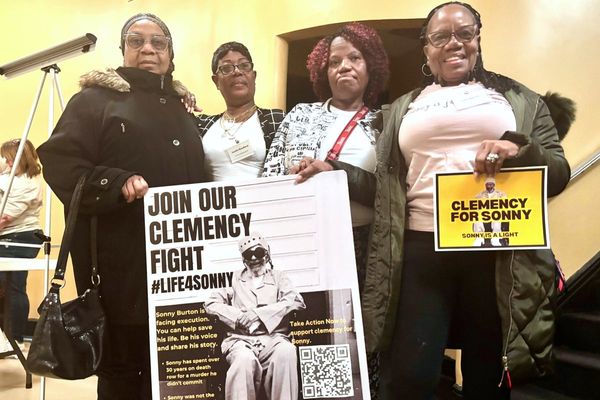
It was a death foretold but the news still hit Ireland hard: Vicky Phelan, a terminally ill campaigner who exposed a cervical cancer screening scandal, died on Monday. She was 48.
President Michael D Higgins led an outpouring of tributes to Phelan’s courage and how she shone a light on health service failures that affected hundreds of other women.
“Thanks to her tireless efforts, despite the terrible personal toll she herself had to carry, so many women’s lives have been protected, and will be protected in the future,” said Higgins. “She will be deeply missed, by all of those who were in awe of her courage, her resilience, offered not only to women but to all of us in Ireland.”
Phelan died at Milford hospice in County Limerick early on Monday morning surrounded by her family – a death that might have been averted had a smear test in 2011 detected abnormalities. It gave a false negative.
She was diagnosed with cancer in 2014 and began treatment weeks later. A review by Ireland’s Health Service Executive discovered the mistake from three years earlier but no one told Phelan until 2017. A year later, she discovered the cancer was terminal.
She sued and won a settlement of €2.5m without admission of liability from Clinical Pathology Laboratories, a Texas-based company subcontracted to assess her test. Crucially, she resisted a gagging order and lifted the lid on a wider debacle. Inaccurate smear test results had been given to at least 208 women later diagnosed with cervical cancer. Most were not told about the revised results. At least 21 have died.
An inquiry detailed how the HSE outsourced screening to unapproved laboratories in the UK and US, failed to keep track of them and had an inadequate system for responding to screening errors. The inquiry excoriated “whole-system failure” and “paternalism” in Irish healthcare.
The taoiseach, Micheál Martin, hailed Phelan’s courage and integrity. “In the history of this country, I think her actions, particularly in not signing a confidentiality agreement at that particular time outside the steps of the high court, will live long in the memory as an example of someone who stood up against the system and the normal conventions,” he told RTÉ. “She stood up for the public interest.”
Phelan was garlanded with honours, invited on chatshows and featured in documentaries. Her memoir, Overcoming, won awards. But all that time, her cancer was advancing – she was told in 2018 she had less than a year to live.
She successfully fought for access to pembrolizumab, an immunotherapy drug that shrunk the tumour and extended her life. “I’ve always been bullheaded and stubborn,” she told the Guardian in 2019. “I thought: I’m not taking this. I’ve got two small kids. You can’t honestly tell me to go home and die. I was so fucking angry.”
She tried not to dwell on how an accurate smear test might have saved her life. “If I go down that road it spirals into depression. I don’t have time on my side.”







